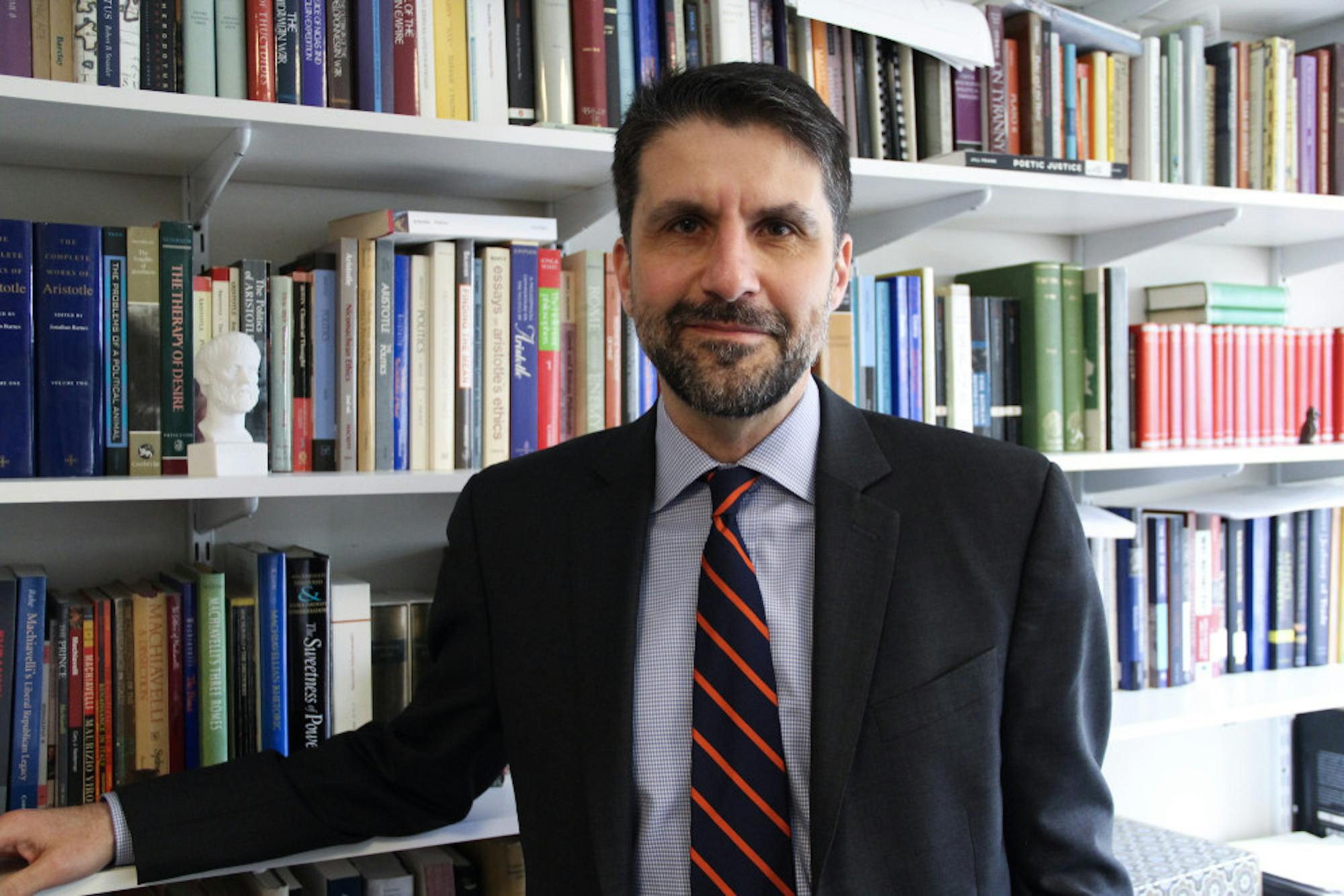Ioannis Evrigenis, professor of political science and classics, has been selected as International Relations (IR) Program director. Evrigenis assumed the leadership role earlier in July and will direct the program before going on leave the following year to pursue a fellowship from the National Endowment for the Humanities (NEH).
His three-year term appointment corresponds with Professor Kelly Greenhill’s temporary departure from the role. Greenhill, who previously served as the director of the IR Program, will return as interim director for the 2021–22 academic year after spending a year in the U.K. as a recipient of the Leverhulme Trust Visiting Professorship.
Evrigenis’ selection was determined through a standard process directed by the deans, which typically begins with requests for input on the current leadership from department or program faculty. Evrigenis explained that the deans take the feedback, along with supplementary considerations such as which professors are on leave, into account before reaching a decision.
Professor Greenhill expressed her confidence about the program’s leadership and spoke of the notable highlights accomplished under the IR Program during past years, including the Applied IR Speaker Series, IR career webinars and the IR internship award.
“I am extraordinarily happy with the choice and the program will be in very able hands between Professor Evrigenis’ leadership and our terrific IR staff,” Greenhill said.
Greenhill said that her proudest accomplishment this year was, in partnership with other IR faculty members, helping all seniors graduate and witnessing how the program helped students navigate the difficult circumstances in the wake of COVID-19.
“I will be back and that's another reason why I don't have to feel so sad. I will be back working with this terrific group and the extraordinary IR students,” Greenhill said.
Professors Greenhill and Evrigenis will both serve the IR Program and take leave for their respective fellowship opportunities, alternating leadership roles during the next two academic years.Greenhill described the Leverhulme fellowship as the opportunity to live in London, interact with a set of scholars and access unlimited historical documents. She anticipates finishing her book, “Fear and Present Danger,” and beginning a new book during this time.
Evrigenis will also be making advancements in his research through the NEH fellowship during the 2021–22 academic year, where he will work on a translation and an addition to “Six Books of the Commonwealth” by Jean Bodin. Evrigenis will then return to complete the remaining two years of his term as IR director.
As director, Evrigenis said he hopes to continue working on initiatives that Professor Greenhill began, especially efforts to focus on student feedback. Evrigenis added that the IR Program intersects several evolving fields and requires that its staff remain current on updates within the major.
The changing conditions of COVID-19 currently shape the future and goals of the IR Program.
Evrigenis acknowledged that the restrictions on campus — the limitations of finding large open spaces, attending office hours without appointments and accommodating remote students — will raise novel challenges requiring creative solutions.
In anticipation of these challenges, Evrigenis explained that his primary goals for the upcoming academic year are to ensure that the program retains its interactive essence, and that staff, students and faculty can work efficiently and safely.
Evrigenis also connected the world's current challenges to the importance of studying IR.
“In the midst of a lot of bad news and a very bleak picture of the world, there’s also a striking encapsulation of the relevance and significance of international relations in every conceivable aspect of the major,” Evrigenis said. “[The major is relevant] from economics to public health, from warfare to attempts to establish and maintain the peace, from issues of distribution of wealth and poverty,” he said.
Evrigenis explained that these problems call for greater engagement from those attentive to these topics. According to Evrigenis, Tufts’ IR students represent a key sample of that group.
“If I were in their shoes, it would reinforce my sense that I’m in the right place doing the right thing,” Evrigenis said. “The collective challenge for us now is to think of ways to ensure that we remain at the top of this field, but also to figure out how we can be most useful to the world because the world needs everybody's help,” he added.






